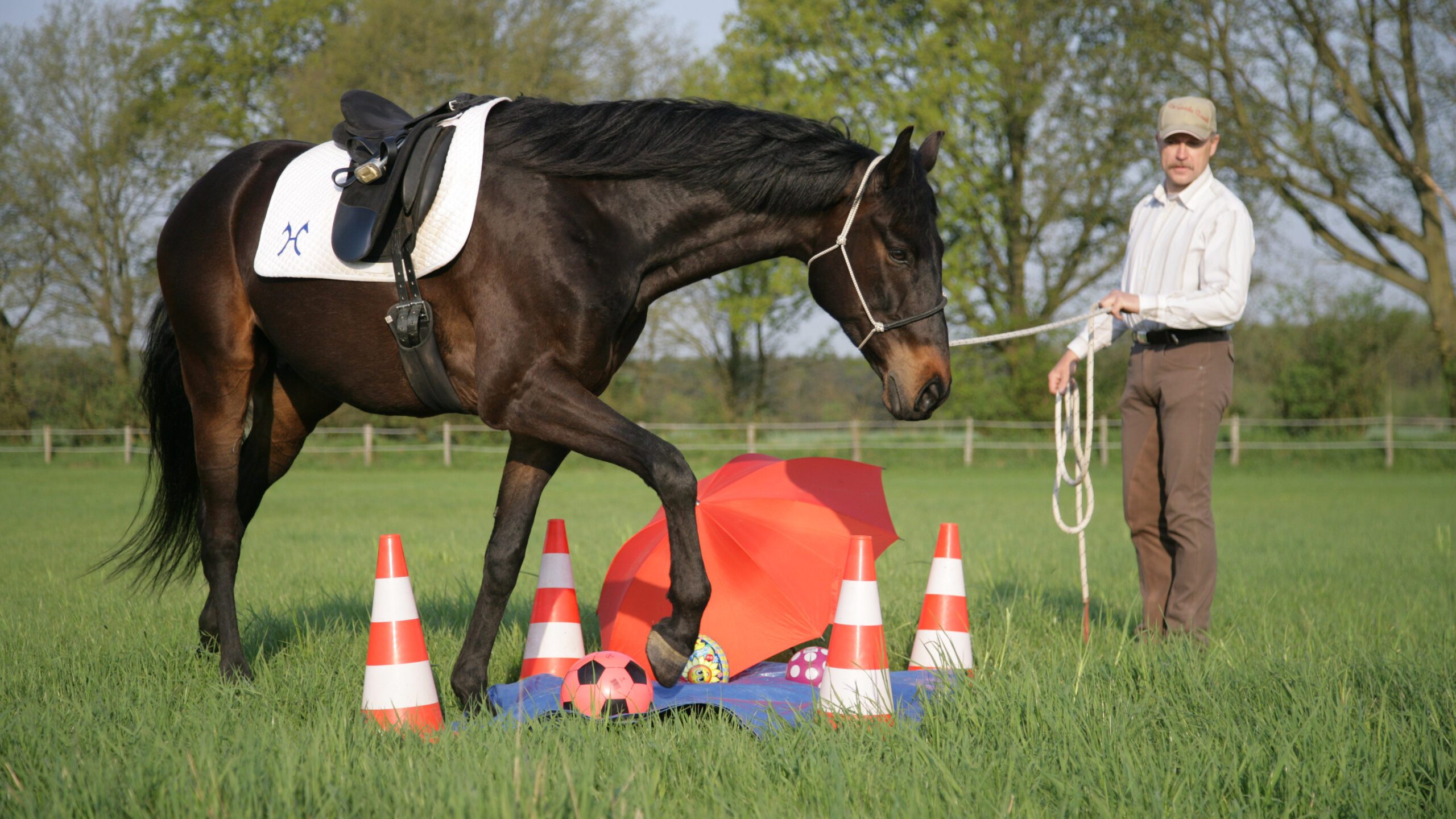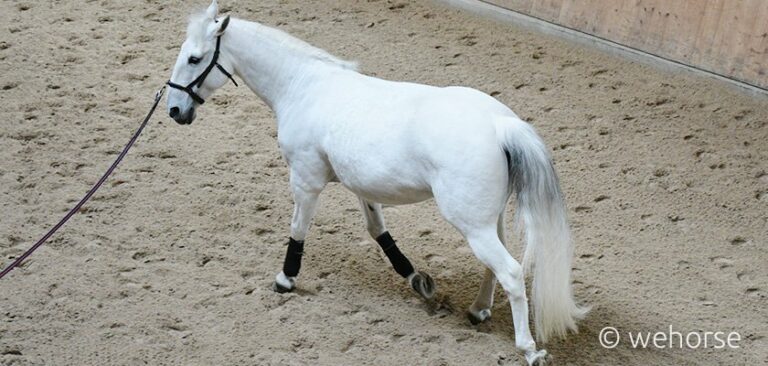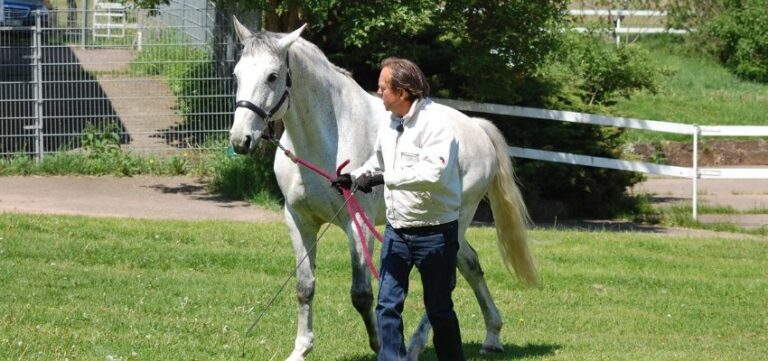Groundwork - The Foundation of Partnership
A building is only as strong as the foundation on which it is built. The same can be said of learning. Without a comprehensive understanding of basic rules, any learner (in this case, your horse) will struggle with complex concepts. That is why groundwork is such a pivotal component of a horse trainer’s program. If taught with fidelity, a horse will have a solid foundation on which to build his understanding of the more complex tasks and maneuvers you will be requiring of him.
Mastering the Basics
There are several key reasons why groundwork is such an essential component of any horse’s training program. First of all, groundwork sets the tone. It serves as your horse’s first introduction, not only to our One of the first areas you want to focus on within our training program relates to groundwork. When you are engaging a horse in groundwork, you are essentially teaching a very basic, albeit important lesson. The lessons you teach at the beginning of our horse’s experience within your personal training program are lessons he or she will apply to any new skills or concepts in the round pen, and subsequently, will translate to the arena.

Is Groundwork Really that Important?
Many riders may feel that the reason that they got their horse in the first place was to be on their backs, not on the ground, but good horsemen and horsewomen recognize that groundwork is a critical component of equitation. The following list details the multi-faceted importance of groundwork, and the influence it has upon both our training of and relationship with our horses.
1. Communication
There seems to be a general misconception that horses can’t see all that well. Although they do possess a blind spot, having eyes placed laterally on their heads, resulting in a mammal with a range of vision of approximately 350º, with about 65° of this being binocular vision and the remaining 285° monocular vision. However, horses possess one of the largest eyes of all of the land mammals, and their vision is actually quite good. Being able to see you on the ground, while you are working with them, as opposed to relying on your communication from their back, not only improves your overall ability to communicate with your horse but also improves trust.
2. Rapport Building
Trust is a key component of the bond you establish with your horse. Being prey animals, they possess an intense fight or flight response, and when frightened, can become incredibly dangerous due to their size. The stronger the relationship you develop with your horse, the safer you will both be when working with one another. Science-based horse trainer Andy Booth, an Australian living near Bordeaux, France, expounds on this idea. “The relationship people seek isn’t likely to be found on the horse’s back, but on the ground. Certainly, the relationships I have with my horses come almost entirely from groundwork.” In regards to trust, he notes, “What we’re really expecting on the ground is confidence and control,” The confidence, he adds, is mutual: “We need to feel confident about being in close proximity with an animal that has the capacity to be ¬dangerous, and the horse needs to feel confident about being near us.”
3. ”Ground Manners & Respect”
Trainers often refer to groundwork as a time spent teaching a horse ground manners and respect. Recent scientific studies, however, have proven that horses do not possess the cognitive functioning necessary for ethical standards, so in fact, can’t really “show” us manners, or develop respect for us in the same ways we think about respecting another living creature. They can, however, be taught to “respect” or observe rules, and this is one area in which groundwork plays a role. Robin Foster, a PhD, Cert. AAB, IAABC, certified horse behavior consultant and research professor at the University of Puget Sound and an affiliate professor at the University of Washington notes, “I want to see a horse that understands safety limits, that doesn’t push us or knock us over or step on our feet or walk ahead of us,” Foster says. “He doesn’t feel any moral obligation to do this, so it’s not manners in the classic sense. But through good training, he’ll learn to avoid unwanted pressures by following the ground rules we establish and reinforce.”
Exercises & Approaches
There are many different types of groundwork exercises that range depending on philosophy and purpose. Some trainers use driving lines on the ground, others may be firm believers in the circus pole, and those competing in events such as halter may focus more heavily upon exercises they will use to show(in this case, they would not want to lose body mass over-exercising their horse). There are many, many different types of exercises, each providing different benefits.
1. The “3 Cs” Check
Trainer Andy Booth likes to perform what he refers to as the “3 Cs” check before ever getting into the saddle on any given day. This is a check he completes utilizing groundwork and lunging and as a means of assessment before even making the decision to ride. For Booth, groundwork lets him verify what he calls The Three C’s: control, confidence, and connection. This feedback allows him to answer some critically important questions, such as: “Do I have control of the horse’s feet?” he asks. “Does he have confidence in me so I can have confidence in him? Do we have a mental connection today—are we communicating effectively with each other?” “If there’s a problem with one of the C’s, that doesn’t necessarily mean you can’t ride, he says. It just means you need to go back to some fundamental groundwork exercises to get the horse where he needs to be.
2. So Much to Learn; So Much to Gain
Groundwork provides a variety of different benefits to both horse and rider. First, work on the ground allows the horse to move more naturally, free of the additional weight on their backs and the burden of maintaining the balance of both. Additionally, work on the ground is safer for both parties; reducing the stress on the animal’s back and significantly lowering the risk of injury to the rider. These exercises also help the trainer gain a new perspective on their horse. Without having to focus on the complex nature of driving the horse from above, the handler can see if the horse is experiencing issues with balance, perhaps lacks impulsion or drive from behind which is hindering movement, and some riders may even be able to see subtle injuries or areas of concern from the ground where they may not have been able to notice them before. All this, while the trainer continues building trust and rapport with their animal and further develops her ability to read and understand her horse’s body language and natural movement.
Paying it Forward…
There are a few other benefits to groundwork worthy of noting before moving away from this topic. One; groundwork is an excellent way to work a horse recovering from an injury, or one that is simply too aged to be riding. Working with these particular cases on the ground still provides them with the exercise and mental stimulation that they need without having to endure the physical stress of supporting a rider and injuring or further unnecessarily injuring themselves. Additionally, groundwork is an excellent way to help tutor a new, young, or inexperienced rider while developing in them an appreciation for communication with a horse while maintaining their safety. Naturally, these key points are not exhaustive, and there are many, many more methods of and benefits to working on the ground with your horse’.
Coming Full-Circle
Although many people don’t want to spend time on groundwork; on being on the ground and learning how to utilize this tool with fidelity and know how to use it, it is critical that trainers learn how pivotal this time truly is. Groundwork is an essential, integral component of both equitation, as well as horsemanship. By recognizing its necessity, you not only do a service to yourself by enhancing and advancing your own skills as a horseman, but you pay homage to the incredible men and women who spent their time laying the paths for what great horsemanship means to us all today. That, and your horse will thank you.
Articles about Groundwork

Lacking straightness? These exercises will help any crooked horse!
Every horse is born unbalanced. If things go wrong on their own in the pasture, the horse can usually figure it out. However, when the

Fear while riding: How to build trust in your horse again
Fear when riding develops quickly: one fall, one careless moment, and suddenly fear comes along for the ride. But it doesn’t have to stay that

The benefits of practicing groundwork with horses
Training with your horse on the ground is an important basis for horse and rider. We often tend to take the basics of working with
